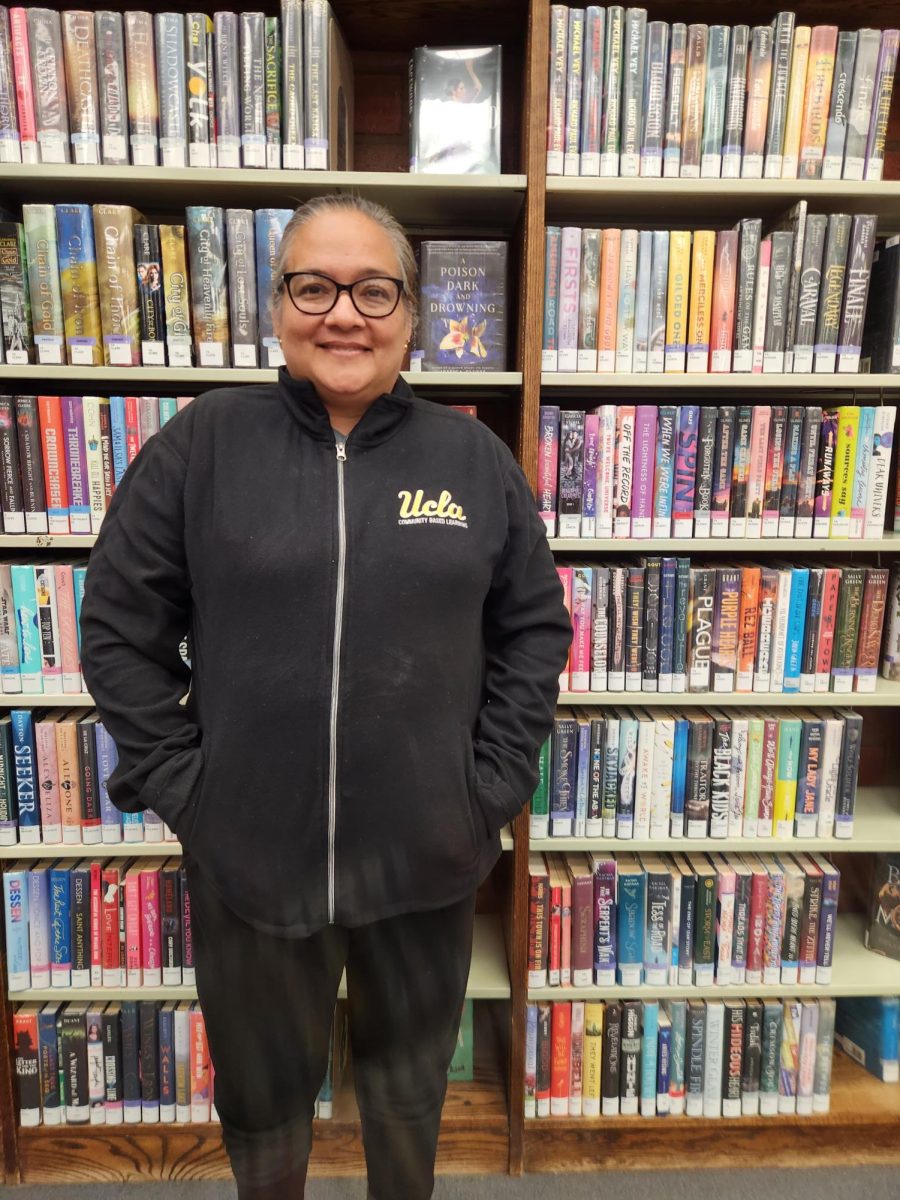Laura Rodriguez is not your ordinary veteran. Rodriguez, 52, grew up in East Los Angeles and was raised solely by her mother after her father passed away. She got accepted into UCLA and sought to make a difference in her community by majoring in nursing, then by trying to earn her teaching credential.
After struggling her freshman and sophomore year, the 21-year-old enlisted in the United States Army. Rodriguez served 14 years and traveled to the Carolinas, Germany, and eventually Kuwait. In 2003, Rodriguez was deployed to Kuwait at a base close to the Iraq border, where she faced threats of bombs and ambushes. When she returned home, Rodriguez became a youth coordinator at UCLA to assist teens and young adults who may be at risk of delinquency. Rodriguez also spends time with the American Legion Auxiliary assisting families of veterans and veterans who are at risk of homelessness.
Who are the people you looked up to growing up?
We had a big, extended family. So, my mom was always the strongest, I thought. You know she was 27 when she was widowed, with a 4- and 6-year-old daughter. Like I said, if you’re not a strong woman by being able to take care of all of that like, who is, right? So, I always thought she was. She always took care of us. We had family members. Believe it or not, I did have an uncle who was in the military. I didn’t necessarily look up to him, but I was really proud of him. I think it was really hard to pick one relative over another, so it was always just my mom.
When you went on deployment, what was it like? Was there a lot of down time?
No. We arrived before war was declared. So, we were just hanging out. We had to go to other warehouses off base where we had supplies. Common sense, when you want to get troops, you know you want to go for their supplies. So, we were always on alert because they wanted the supplies in case they wanted to target us. That first month, two months, were a little rough because there was bombing. The Kuwait barracks are only 200 miles from the border of Iraq. So, we were obviously locked down and you could just hear the alarms to put on your chemical gear. And then you could hear the patriot missiles because they were guarding the bases. It’s kind
of like the movies, it’s real.
Where does your patriotism come from? Did it come from your uncle?
I don’t think it was just that … I was very adamant that I was American. People would tell me I’m Mexican. “No, I know. But I’m Mexican American.” They’re like, “You’re just Mexican.” I’m like, “But I’m Mexican American, I was born here.” So, I think that stuck with me ever since because a conversation that tends to come up a lot for people is that we’re not Mexican enough for people in Mexico, and we’re not American enough for people in America. I remember having those thoughts, conversations, and possibly arguments depending on who I was talking to.
As a youth coordinator, what is your job like?
I work with kids, young adults, young people from 16 to 24 to get them back on track, to get their diploma, GED, something to get them back into school in some way. A lot of them drop out and you know, that’s not very helpful for work. So, we work with low-income at-risk youth, foster some on the borderline of homeless youth to just re-engage them. If not, get them back into school, and then work with them on work readiness skills.
What do you do for the Auxiliary? Do you do programs and volunteer work?
I’m actually the treasurer. I used to be the secretary and treasurer. Now, this year I’m only the treasurer. We do events and we try to do our fundraising…we just try to generate enough money so we can help. I’m the National Security and [Veterans Affair and Rehabilitation] chair. For the kids at Fort Irwin, we try to send them backpacks and do little extra things. As far as for veterans, El Monte has three housing units, in case you didn’t know. So, we try to fundraise to be able to provide them with supplies.







